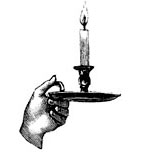
Ripeness Is All
GUEST COLUMN
What is it about age 31? For years, in fact until the day he died, Pascal carried around a handwritten note on his person. It read:
The year of grace 1654.
Monday, 23 November, feast of St. Clement,
Pope and Martyr, and of others in the martyrology.
Eve of Saint Chrysogonus, Martyr, and others.
From about half past ten in the evening until half past midnight.
Fire
God of Abraham, God of Isaac, God of Jacob,
not of philosophers and scholars….
This is, by virtue of its intensity, an alarming testament. But more alarming still is its date. In 1654 Pascal would have been 31 years old. Take someone else — Dostoevsky, say, who underwent a similarly decisive experience exactly 200 years later at the end of a term of penal servitude in Siberia. Dostoevsky’s age at the time? He entered prison at age 29; he left at age 33. The list could go on and on, for it is endless. Time after time people from all centuries and all nations appear to undergo a conversion of one sort or another around the time of this, their 31st year, to heaven. St. Augustine? Thirty-one. T.S. Eliot? Twenty-nine. Dorothy Day? Thirty. W.H. Auden? Thirty-three. C.S. Lewis? Twenty-nine. Juliana of Norwich? Thirty-one. St. Paul? Thirty-three. Eric Gill? Thirty-one. The event occurs with such regularity at or around the 31st year that one might almost assume a “religious crisis,” as it is commonly called, to be a biological event.
That established, two questions immediately come to mind.
You May Also Enjoy
GKC asserts that Jesus was not merely one of many great figures in history; rather, He is at the center of all history: past, present, and future.
Aristotle, like Plato, recognizes just how sovereign music and literature are in a man's life. "Virtue consists in rejoicing and loving and hating aright," he writes.
Flannery O'Connor’s writing is not grotesque, not fantastic; it’s merely simple — which is to say that for her, in the end, there are only two options: time or eternity.

